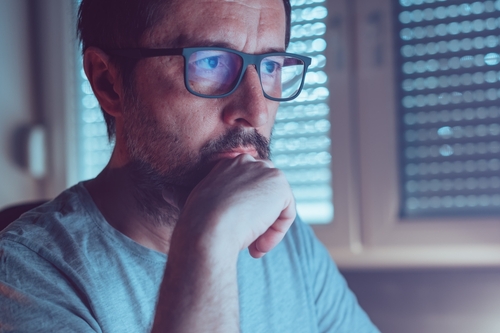
We are surrounded by digital screens—phones, tablets, computers, and TVs. These devices give off blue light, and it’s become a common concern for parents, students, and professionals alike. Many people are now asking: “Is blue light bad for my eyes?” and “Do I need blue light blocking glasses?”
Let’s look at the facts and clear up some misunderstandings about blue light.
Where Does Blue Light Come From?
Blue light is a part of the visible light spectrum, which means it's a natural part of the light we see every day. There are two main sources of blue light:
The Sun: This is by far the largest source of blue light. In fact, when you are outside during the day, you are exposed to much higher levels of blue light than from any screen.
Digital Screens and LED Lighting: Phones, tablets, computers, TVs, and energy-efficient LED lights also emit blue light, although at much lower levels than sunlight.
Does Blue Light Harm Your Eyes?
This is where things can get confusing. While many people worry that blue light from screens may damage the eyes, there is no strong scientific evidence that blue light from digital devices causes permanent damage to eye health.
However, blue light can cause glare, which may lead to eye strain, especially when staring at a screen for long periods. Blue light-blocking lenses may help reduce this glare for some people, making screen use more comfortable.
Still, it’s important to understand that these lenses do not protect your eyes from disease or stop your vision from getting worse. They are not proven to prevent conditions like macular degeneration or cataracts.
Blue Light and Sleep
One area where blue light clearly has an impact is sleep. Blue light plays a strong role in controlling our natural sleep-wake cycle, called the circadian rhythm. When it’s dark, your brain makes a hormone called melatonin, which helps you feel sleepy. When you look at screens late in the evening, the blue light can block melatonin production and make it harder to fall asleep.
You can do several things to help your body maintain a normal circadian rhythm.
Use the "Night Shift" or “Night Mode” feature on your phone or tablet. These settings reduce the amount of blue light your screen gives off after sunset.
Try to avoid screen time 1–2 hours before bedtime to help your body wind down naturally.
Are Blue Light Glasses Right for You?
While some people do report less eye strain and better sleep when using blue light glasses, not everyone will notice a benefit. Studies have shown mixed results.
Here’s a simple summary:
✅ May help reduce glare and eye strain
✅ May help some people sleep better
❌ Do not prevent eye disease
❌ Not proven to help everyone
A Balanced Approach
At Small Wonder Eyecare, we believe in evidence-based care. That means giving you honest answers. While blue light glasses are safe and may help with comfort, they are not a necessary tool for everyone.
Instead of focusing only on blue light, we recommend the following for everyone who uses electronic devices.
Follow the 20-20-20 rule: Every 20 minutes, look at something 20 feet away for at least 20 seconds. This helps relax your eyes.
Anti-glare coating on glasses: this decreases the amount of light that reflects off the front surface of your lenses. It allows more light to enter your eyes and reduces glare.
Regular comprehensive eye exams help us keep your eyes healthy and comfortable—whether you're working, learning, or relaxing.











